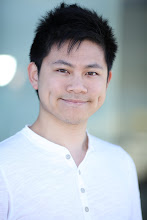- Never leave CHEM 233 for last minute if you want to do well. This is not one of those courses where you just keep attending lectures all term, and then finally decide to put in some effort before the midterm and final. Speed and accuracy is part of the game when midterms come. And speed and accuracy can only be achieved with practice and time until you reach a level you’re comfortable with.
- Spend less time in the SUB sippin’ on Starbucks and chatting with your friends and do some practice problems instead. As President Obama says, ‘we can’t get something for nothing. We all gotta’ sacrifice a bit.’
- When you’re studying, always think BIG PICTURE.
- In the winter session as opposed to the summer session, you got time on your side. So that means you can actually crack open that thick text book of yours. My advice to you, DO NOT study the text book fully. No one has time to do this unless they live on campus and seclude themselves from all social life. ONLY use the text book when you’re in desperation of guidance as you’re studying/reviewing/doing problems, if you want to clarify something in your class notes or your prof speaks in Hebrew. My notes are usually messy, so a text book really helps because the reactions are drawn and laid out so neatly.
- Form study groups. This is not my personal style, but some people says this works, so I’ll say it too. I believe study groups only work in certain contexts.
- If you start out with a negative attitude towards organic chem, you’re going to hate it all throughout the term. You’ll never be great at something if you have a genuine displeasure in doing it. So I say, even if you detest CHEM 233 with every nerve in your body, pretend you like it and SMILE.
- On the previous note, if you force yourself to smile as you’re studying and doing practice problems, you’ll actually psychologically accustom your brain to liking and associating CHEM 233 with happy wonderful things in your life. Contrary to what you think, according to the book BLINK by Malcom Gladwell, scientific studies have shown that the process of being happy doesn’t start from an external stimulus that then translates into a smile on your face, it is rather the physical action of smiling that tells the brain you’re happy. People who force themselves to smile more for no reason are happier and less depressed. WIERD!
- And of course, in promotion of my tutoring program, if you need help or you want to stay ahead of the game, e-mail me at tsangt@interchange.ubc.ca and SIGN ON UP!
Sunday, August 16, 2009
Tips to Improve your studying habits for CHEM 233 and beyond
Subscribe to:
Post Comments (Atom)

Hi, I have a question -
ReplyDeletewould you recommend doing practice problems from the textbook (Bruice) or are there better sources of practice problems?
Thanks in advance.